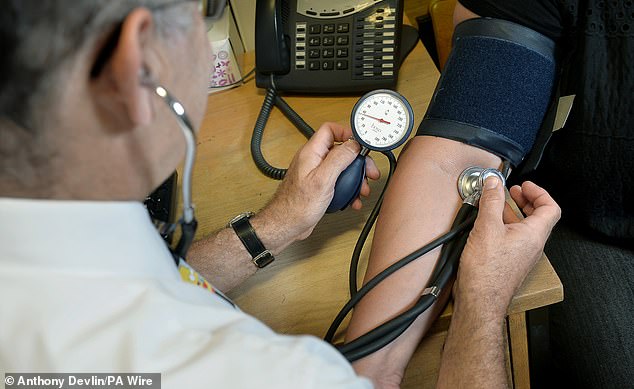GPs want an 11 per cent funding increase, following further pay rises in the public sector.
GPs are currently taking part in a strike after voting in favour of a vote that threatened to bring the NHS to a “standstill”.
Letters sent by the British Medical Association trade union to its members reportedly claim that the Government has given GPs a 7.4 per cent funding increase (worth around £500m) for 2024/25.
The increase would take the form of an increase in funding per patient for the practices.
But the BMA wants a 10.7 per cent rise because it fears the offer does not represent a pay rise “in real terms”.
The letter, seen by news site GPonline, claims the amount is “reasonable” given pay rises given to other doctors.
GPs are currently taking part in a strike after voting in favour of a vote that threatened to bring the NHS to a “standstill” (file image)
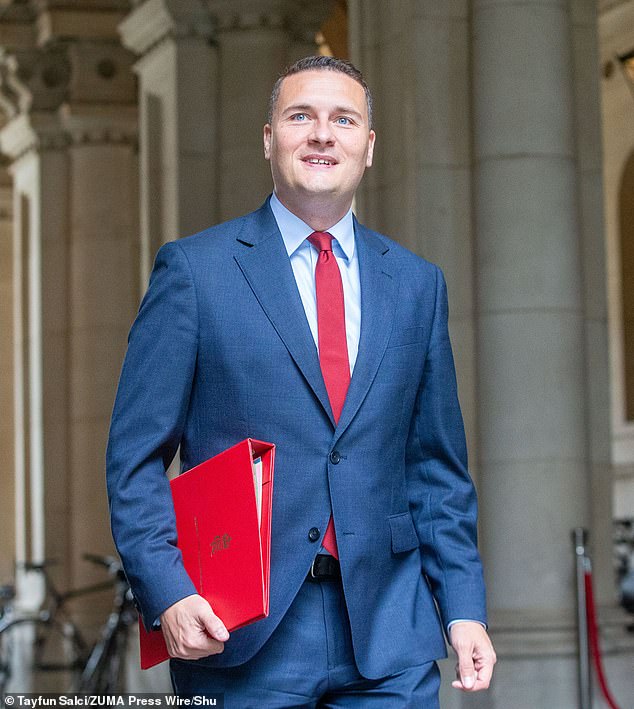
The Labour Party has granted GPs a 7.4 per cent funding increase (pictured: Health Secretary Wes Streeting)
Hospital consultants have received a 20 percent pay rise, while junior doctors will earn an additional 22 percent over two years.
The protest comes amid a series of measures being implemented by GPs, including reducing the number of patients they can see to 25 a day. The protest is expected to last four months.
The Conservatives also criticised Labour, claiming it was allowing pensioners to freeze while cutting winter fuel payments.
This comes after ministers were criticised yesterday for finding funds to increase train drivers’ wages.
Labour says it has agreed a deal that will see the average train driver’s pay (for a four-day week) rise from £60,000 to £69,000.
The news will come as a relief to commuters who have suffered repeated misery as a result of 18 Aslef strikes in two years – the longest rail dispute in recent history.
But this opens Labour up to accusations that it has once again caved in to its union “bosses” because the deal comes with no conditions attached.
Conservative transport spokeswoman Helen Whately also said: “A ‘no strings attached’ deal means this will be paid for by passengers and taxpayers.
“We need to make our railways more efficient, but instead Labour has simply caved in to the unions. Abandoning reforms to working practices leaves a hole in the finances that can only be filled by higher fares or higher taxes.”
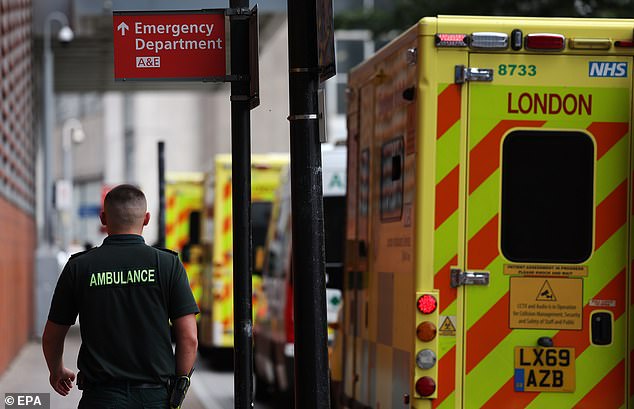
Labour’s recent deal with train drivers’ unions has led to accusations that the party has “given in to the unions” (file image)
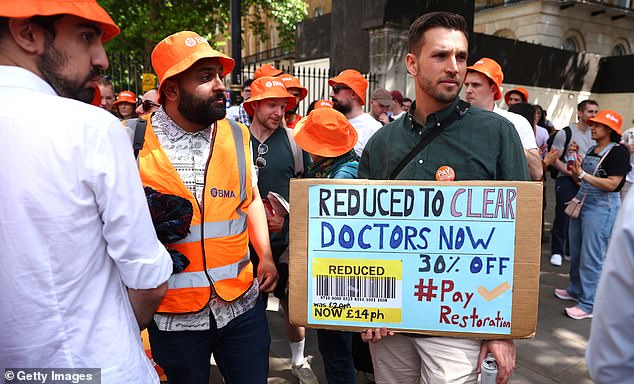
The new Health Secretary said strike action would only “punish” patients, adding that the government wants to partner with medical staff to “rebuild the NHS” (pictured: junior doctors on strike in June)
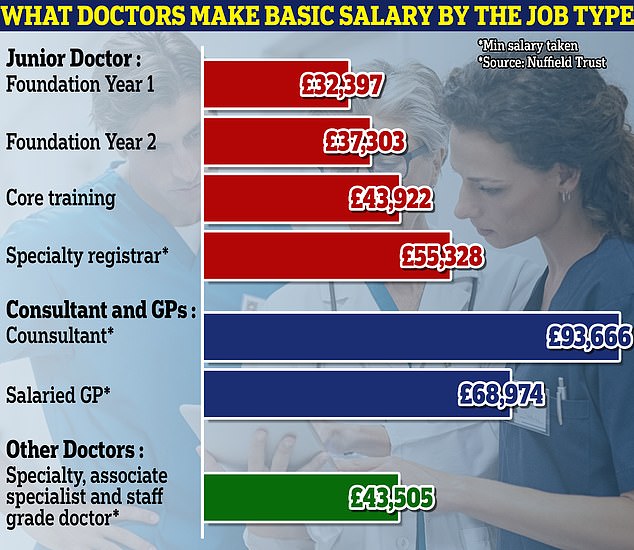
Junior doctors in their first year now have a basic salary of £32,300, while those with three years’ experience earn £43,900. Senior doctors earn £63,100.
He also accused the Labour Party of “surrendering to the unions”.
He added: “Abandoning reforms to labour practices leaves a hole in the finances that can only be filled by higher tariffs or higher taxes.”
As new demands emerge from other public sector workers across the country, Wes Streeting has called on GPs not to take to the picket lines.
The new Health Secretary said strike action would only “punish” patients and added that the government wanted to partner with medical staff to “rebuild the NHS”.
Mr Streeting is aiming to secure Treasury funding for GPs in the October Budget as part of efforts to produce long-term solutions.
In a recent letter, Dr Julius Parker, vice-chair of the BMA committee, wrote: ‘A 7.4 per cent increase is above current inflation.
‘However, it does not meet GPC England’s target of an increase that would restore GP Contract revenue in real terms to 2018/19 levels, which we estimate would have required a 10.7 per cent increase.’
Dr Parker said the latest development was “a welcome step forward” but expressed a desire to see a new negotiated contract for GPs.
Last month, junior doctors were offered a 22 percent pay rise over the next two years as union members prepare to vote.
Meanwhile, the Royal College of Nursing (RCN), which is still at odds with the government, has launched a consultation on the six per cent pay rise nurses will receive in 2024.
Professor Nicola Ranger, general secretary of the RCN, told The Telegraph: “We don’t begrudge doctors their pay rise… What we are asking for is the same fair treatment from the Government.”


